|
Only those Canadians aged 70 or older have ever lived during a time when our head of state was a king. And the last time there was a King named Charles (1685), Canada was still almost 200 years away from being a country. But this morning, we are all getting used to the idea of King Charles III.
For many, the death of Queen Elizabeth will go down as one of those days where you will always remember where you were when you heard the news. Regardless of one’s view of the monarchy as an institution, Elizabeth was widely admired personally. She made 22 official visits to Canada during her seven decades as Queen. And in our lead story today in The Conversation Canada, Thomas Klassen of York University points out “Canada became dramatically less anglophone and anglophile” during her time on the throne.
“In the 1950s, high-school students across English Canada waved the Union Jack, sang the royal anthem (God Save the Queen), said the Lord’s Prayer and cheered cadet corps dressed in British khaki,” he writes.
We’re devoting today’s newsletter to a collection of stories on the Queen and the British monarchy produced by the global network of The Conversation. There will be many more stories to follow in the days and weeks ahead as the inevitable debate will begin on the future of the monarchy here in Canada and elsewhere.
|

|
Scott White
CEO | Editor-in-Chief
|
|
The Death of the Queen
|
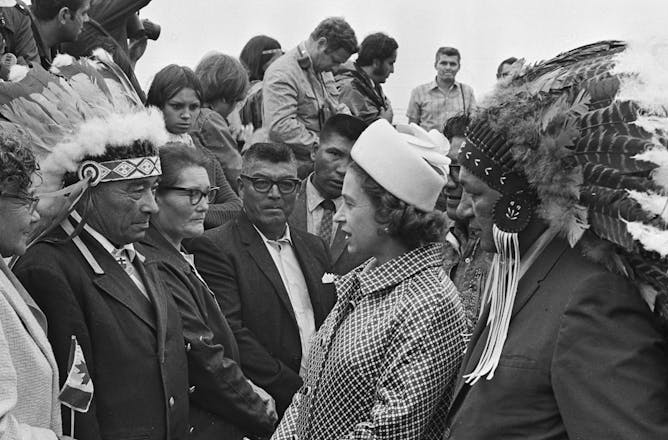
The Queen in Manitoba during a 1970 royal tour.
THE CANADIAN PRESS/Peter Bregg
Thomas Klassen, York University, Canada
Queen Elizabeth harnessed goodwill from Canadians mostly as an individual, rather than as the hereditary head of an institution. But her death will lead to debate about the relevance of the monarchy.
|
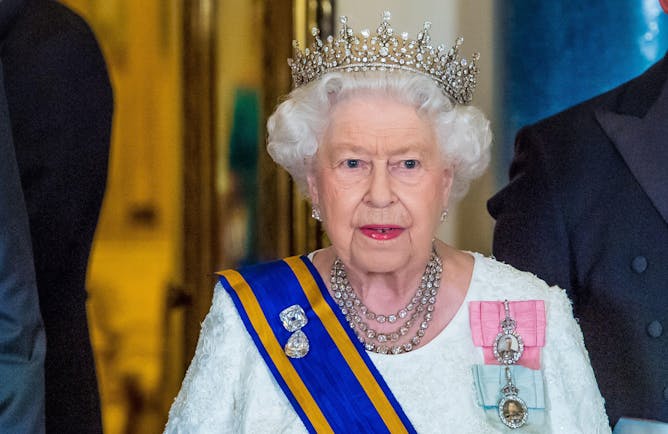
Elizabeth II: Britain’s longest-reigning monarch.
Sipa US/Alamy Stock Photo
Sean Lang, Anglia Ruskin University
Elizabeth II was a safe pair of hands for the British monarchy in a turbulent and changing era.
|
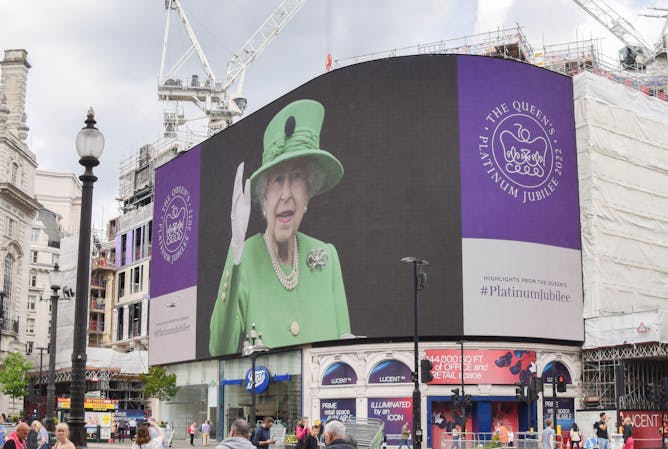
JC JBB.
Laura Clancy, Lancaster University
Britain has gone through unimaginable change culturally and politically during Elizabeth’s 70-year reign.
|
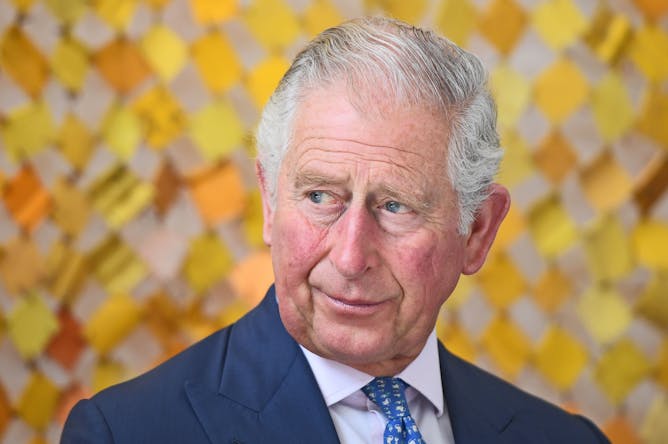
Prince Charles, on a visit to Accra, Ghana.
Joe Giddens/PA Wire/PA Images
Stephen Clear, Bangor University
Charles has been a “rebellious” prince, but that won’t translate when he’s king.
|
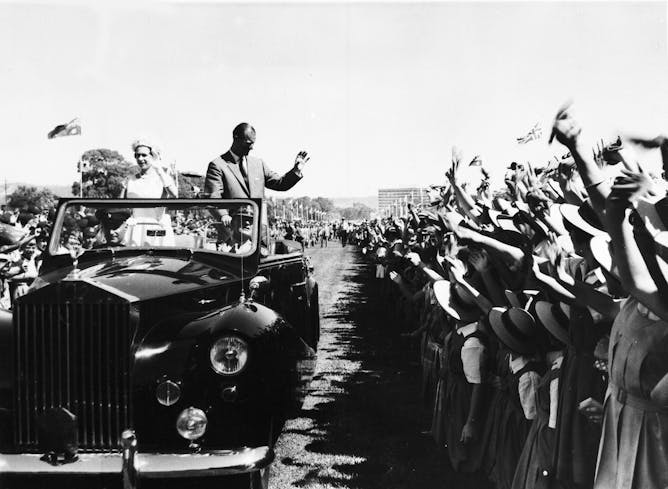
Queen Elizabeth II and Prince Philip drive down Victoria Park racecourse, in Adelaide, 1963.
AP Photo
Giselle Bastin, Flinders University
The queen’s visits to Australia from 1954 to 2011 offer a snapshot of the changing relationship Australians have had with their sovereign and with the monarchy.
|
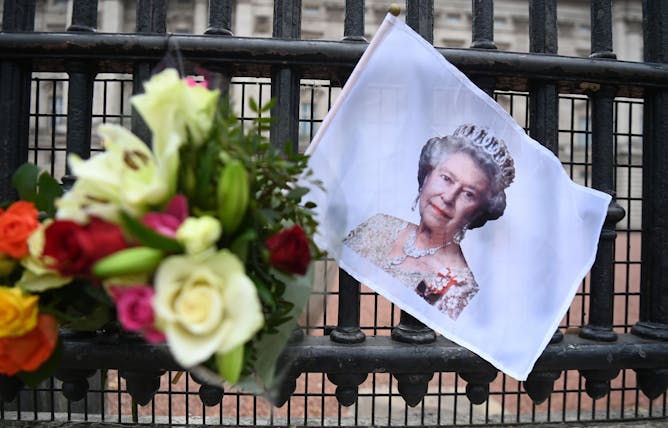
Andy Rain/EPA/AAP
Sarah Wayland, University of New England
Grieving the queen’s passing can be different to grieving the loss of someone we were close to. It’s also complicated by politics, colonialism and the contest about who she really was.
|
Other top stories
|

Frédérick Guillaume Dufour, Université du Québec à Montréal (UQAM); François Tanguay, Université de Montréal
Where do the Conservative Party of Québec and its leader, Éric Duhaime, a newcomer on the political scene, fit in?
|

Colleen Grady, Queen's University, Ontario
A strong primary care system keeps patients away from emergency departments and helps patients self-manage illnesses. But Ontario’s plan to ease pressure on emergency rooms ignores family medicine.
|

Robin Pesch, Newcastle University; Ebru Ipek, San Francisco State University; Stacey Fitzsimmons, University of Victoria
Managers can play a key role in helping refugee employees thrive in their new workplaces, instead of robbing them of their autonomy.
|
La Conversation Canada
|
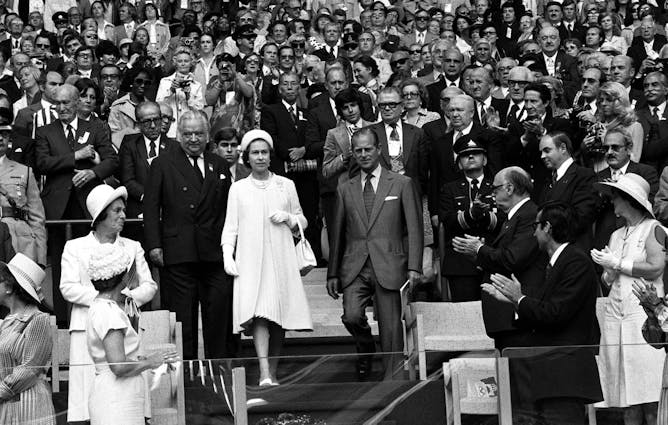
La reine Elizabeth II et le prince Philip arrivent à la cérémonie d'ouverture des Jeux olympiques de 1976 à Montréal, le 17 juillet 1976.
La Presse Canadienne/Wally Hayes)
Thomas Klassen, York University, Canada
Les Canadiens appréciaient la reine Elizabeth en tant qu’individu, plutôt qu’en tant que chef héréditaire d’une institution royale. Mais sa mort entraînera un débat sur la pertinence de la monarchie.
|
|
|
| |
| |
| |
| |
|
|